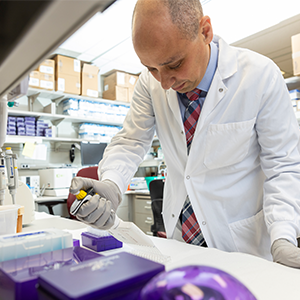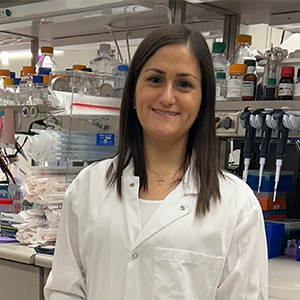-
Science Saturday: The benefits of genetic testing for healthy people

More than 1 in 10 people who had predictive genomic testing ― testing that looks for genetic mutations in otherwise healthy people ― learned that they had a hereditary risk for a health condition and may benefit from preventive care, according to a recent study published in Mayo Clinic Proceedings. This study is the first to assess predictive genetic testing in a clinical setting.
Researchers found nearly 12% of people had findings that were "clinically actionable," meaning they had genes that increased their risk for various types of cancer, cardiovascular disease or a negative reaction to anesthesia. Therefore, they may be candidates for preventive care, such as regular screening, preventive surgery, or receiving or avoiding specific anesthetics.
"About half of those patients did not have a personal or family medical history that would suggest they had this risk, meaning it likely would not otherwise have been identified," says Jennifer L. Anderson, a Mayo Clinic genetic counselor and the study's lead author. "Our findings suggest that many people who are generally healthy may have a genetic risk, and broader adoption of predictive genetic testing could be beneficial in routine medical practice ― ideally including genetic counseling."
Between 2014 and 2019, 301 of 1,281 patients pursued predictive genetic testing at Mayo's Predictive Genomics Clinic, where diagnosis and treatment are individually tailored.
Of note:
- Overall, 11.6% of patients, or 35 of 301 of patients, had a gene that was associated with a hereditary risk, most commonly the BCHE, BRCA2, CHEK2, LDLR, MUTYH or MYH7 genes. These genes are associated with health issues such as a negative reaction to certain types of anesthesia, breast and colon cancers, high cholesterol, or heart disease.
- Of the 29 patients with hereditary cancer or cardiovascular risks identified, 51.7% of patients, or 15 patients, had no family or medical history of the genetic risk.
- Also, 55.8% of patients, or 168 of 301 patients, were carriers of at least one recessive gene. This means that while their health likely isn't affected, their children's health could be. If both parents carry the same recessive gene and pass it on, the child would have a risk for the genetic condition.
- A gene associated with multifactorial disease, which is a disease caused by multiple genetic and environmental factors, was found in 42.5% of patients, or 128 patients. This gene is just one of a number of aspects, in addition to lifestyle choices and environment that increase the risk of developing a health condition such as Alzheimer's disease.
The number of people who decided to pursue testing at Mayo Clinic increased from 11% in 2014 to 40% in 2019, according to Anderson.
"We have found that patients are increasingly interested in this type of predictive test and want to learn about their genetic risk for diseases, even if they do not have a personal or family history of those conditions," says Anderson. "Genetic counseling is an important part of predictive testing by helping patients understand the results and their options for preventive care."
Learn more
Read more stories about advances in individualized medicine.
Register to get weekly updates from the Mayo Clinic Center for Individualized Medicine blog.
Join the conversation
For more information on the Mayo Clinic Center for Individualized Medicine, visit Facebook, LinkedIn or Twitter at @MayoClinicCIM
Related Articles







